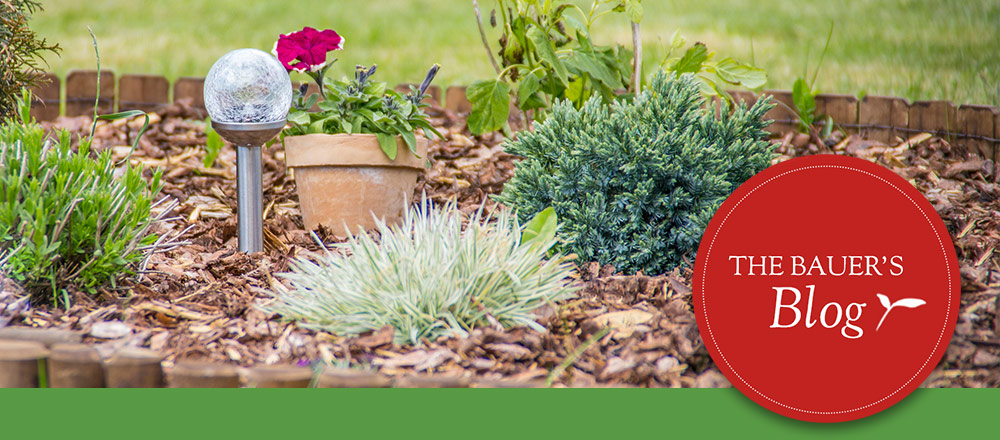Most people are familiar with the concepts behind composting. Not only does it allow us to produce less landfill waste, but it’s also a way to use our organic household scraps to enrich our garden soil. Despite the benefits, many folks are hesitant to start composting. Generally, it’s due to a concern that our compost bins will add more odors to our homes or more tasks to our to-do lists. Luckily, compost doesn’t have to be a pain and the benefits of getting started far outweigh the minimal impact on your schedule!
Composting Basics
A compost bin can be a scary place for a composting beginner, but understanding the science happening inside can help to relieve that intimidation factor.
The ideal recipe for useful compost is 1 part ‘green’ stuff — things like lawn cuttings, plant trimmings, and compostable kitchen refuse — and 2 parts ‘brown’ stuff — or dead plant material, like fallen leaves, old paper, and wood shavings. As it decomposes, the ‘green’ stuff releases nitrogen, which creates heat within the pile. Meanwhile, the ‘brown’ stuff releases carbon, which mixes with the heat and feeds the colonies of beneficial bacteria that break down the heap. The carbon neutralizes the odor of the decomposing ‘green’ material, while the intense heat from the nitrogen prevents eggs, seeds, and pests from establishing.

The other two necessary ingredients are airflow and moisture. The best compost bins have a lower “window” area for air to enter and escape the heap. The airflow is important for the compost to come together uniformly. Since the contents of your compost heap should be ⅔ dead material, adding moisture is sometimes necessary to ensure the bacteria are able to make their way through the compost. The pile should always be about as wet as a sponge that has been wrung out. Use a plastic lid to keep the moisture inside your compost heap and prevent it from getting drenched in rainstorms, which can inhibit airflow and reduce the quality of the compost.
Managing Compost
Making compost is an ongoing process that requires regular monitoring of the compost heap. A healthy heap should be hot enough that you feel radiant heat coming from the pile when hovering your hand over the surface.
If the pile is cooling down, you may notice odors starting to develop. To fix this, add some more ‘brown’ materials and turn the pile with a shovel a few times. This should re-ignite the nitrogen supply in the compost heap.
Composting for Small Spaces
Yes, apartment-dwellers can compost, too! Even if all you have is a small amount of space on a balcony or in your kitchen, it’s possible to keep your own compost container.
Tumbler composters are shovel-free solutions that take up minimal space and allow you to turn your compost easily. There are also plenty of homemade compost bin project instructions available online that allow you to build a smaller-scale compost container.
If you’re not squeamish, vermicompost (or worm composting) is a method of composting that uses red wriggler worms to break down food waste. You can build an indoor compost bin that houses the worms, and as long as you maintain the bin, they convert your household organics into rich soil with no odor.

Ways to Use Compost
Compost is beneficial for flower gardeners and vegetable gardeners alike. Finished compost, which should have that nice black-soil texture and color, can be added to garden soil and mixed in throughout the planting season to nourish your plants and boost harvest yields!
For containers or indoor planters, you can add your finished compost to potting soil to keep the soil rich and prolong the lives of houseplants. These containers are normally more sheltered from bugs and disease, but they also don’t get much exposure to other organic material, so the supply of nutrients in the soil is finite without some compost to give it a boost.
Finally, some folks like to make compost tea to treat their gardens with a natural liquid fertilizer. Finished compost enriches the soil over the long term, but compost tea makes some of that compost nutrition available faster for your needier plants. To make compost tea, steep some finished compost (not the whole pile—remember we want to avoid saturating our heaps) in a bucket and, after 24 hours, strain the liquid into a sprayer. You can apply the compost tea anywhere that could use a quick boost of moisture and nutrients.

Composting is a net benefit for you, your garden, and the environment. While there is a little setup and maintenance involved, you’ll feel good about reducing your waste footprint while naturally enriching your garden for years to come!







Leave A Comment